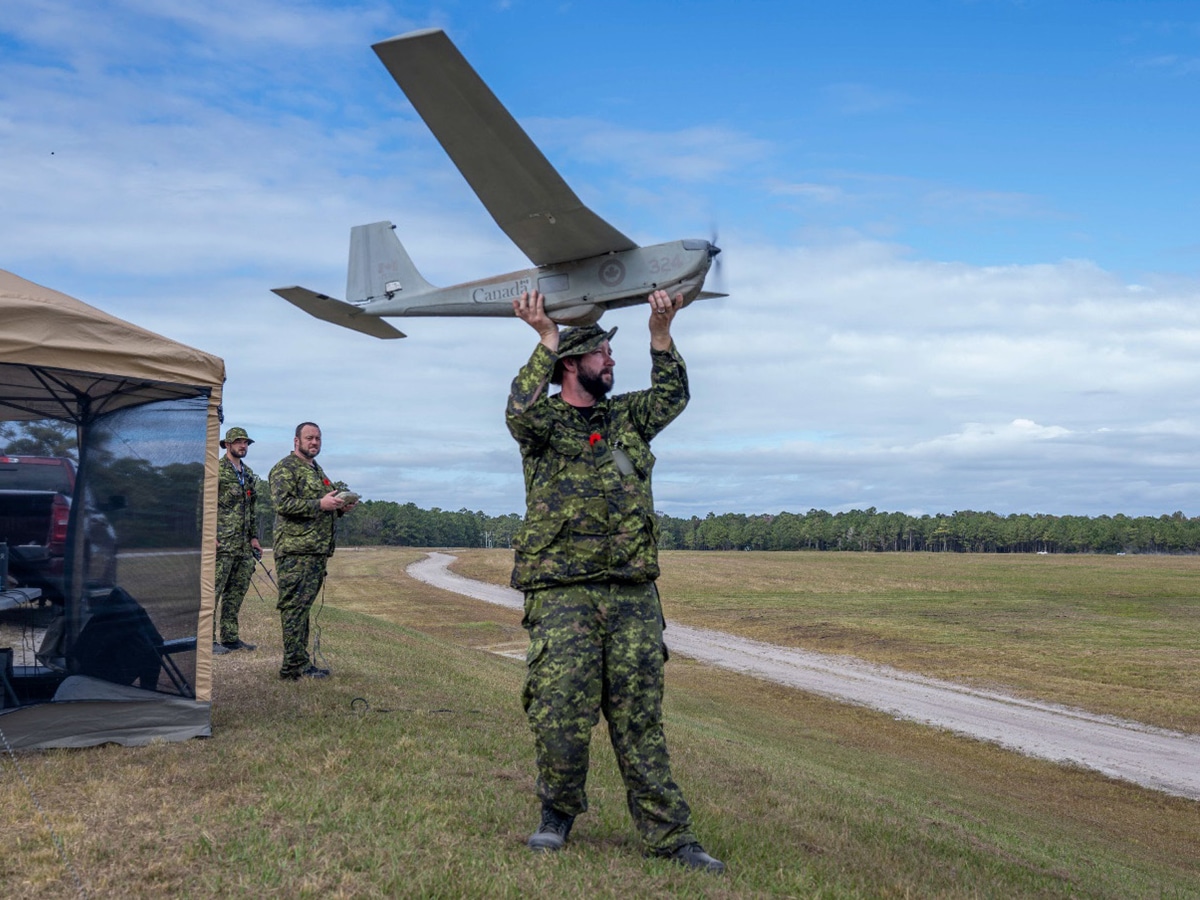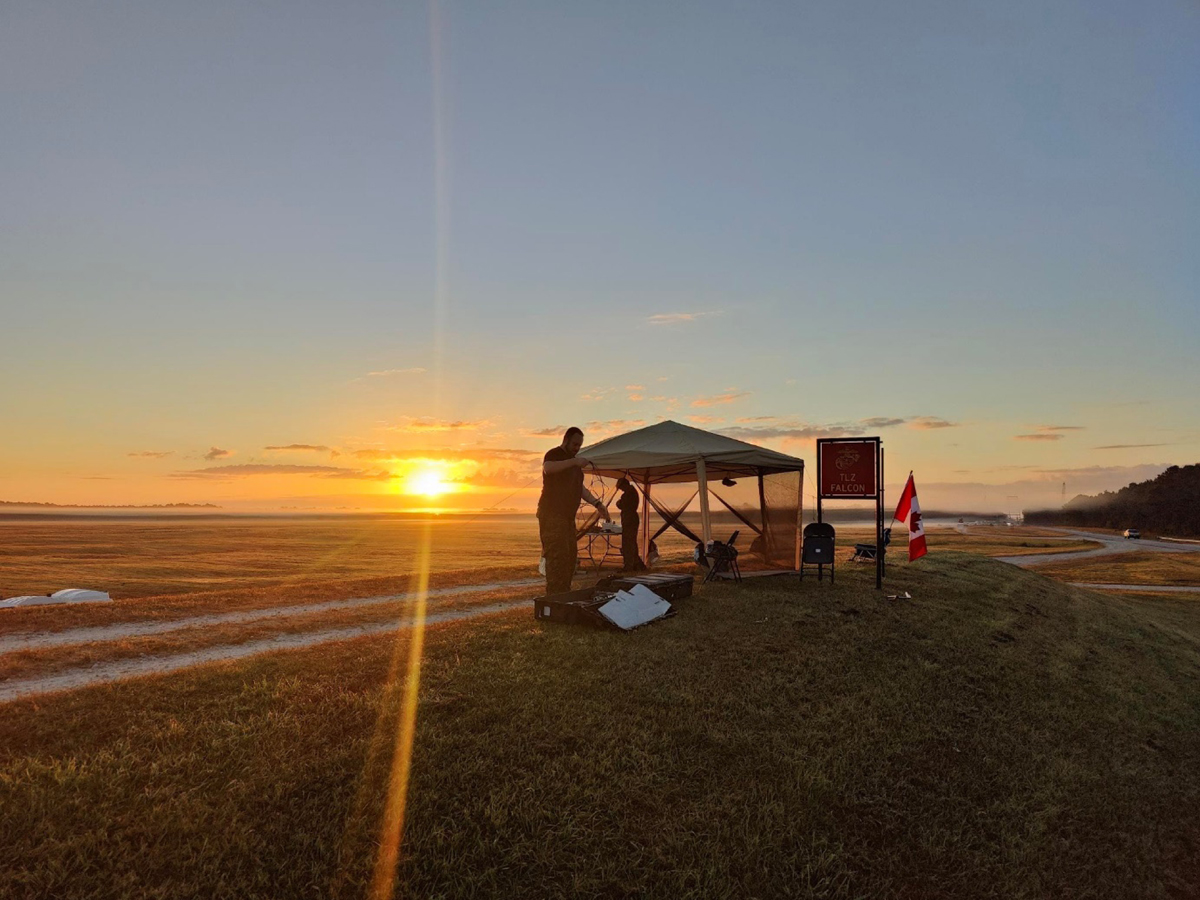Advanced Naval Capabilities Unit Sailors Fly High at Bold Quest 24
By Lookout on Jan 16, 2025 with Comments 0

The Advanced Naval Capabilities Unit participates in Bold Quest 24 in Jacksonville, North Carolina. Photo provided.
Lt(N) R. Davies,
Uncrewed System Officer, ANCU
—
From October to November 2024, Advanced Naval Capabilities Unit (ANCU) took part in Bold Quest 24, a significant multinational event hosted by the United States Joint Staff in Jacksonville, North Carolina. This prestigious event brought together approximately 2,000 personnel from 17 different nations, fostering collaboration and enhancing capabilities among allied forces.
The ANCU team had three primary missions during the exercise: to integrate into the intelligence cycle of the exercise, participate in a medical demonstration and practical field test of modern medical networking technologies, and support Intelligence, Surveillance, and Reconnaissance operations.
To achieve these goals, ANCU deployed a team comprised of an Intelligence officer, a medic and Uncrewed Systems operators flying the CU-175 Puma – a miniature fixed wing Uncrewed Aircraft system used both on land and at sea.
One of the standout achievements of the ANCU team during Bold Quest 24 was their support for the first successful execution of the Intelligence Requirement Management and Collection Management (IRM&CM) process using solely Canadian assets through Federated Mission Network (FMN). ANCU sailors played a critical role in providing Full Motion Video (FMV) to the FMN and the Mission Partner Environment. This FMV was subsequently transmitted to the Canadian Forces Maritime Warfare Centre and Trinity in Halifax, marking a significant advancement in the speed and efficiency of intelligence collection and processing.
Leading the intelligence efforts, Lieutenant(N) Jeong served as the Naval Intelligence lead for Bold Quest 24, heading a team focused on the practical use of Common Intelligence Picture tools and implementing the IRM&CM cycle.
Meanwhile, ANCU’s medic, Master Corporal (MCpl) Patterson, integrated with the Royal Navy and the United States Marine Corps to evaluate the United States Air Force Research Laboratories Battlefield Digital Data Collection Kit (BATDOK), to address medical needs and gather vital intelligence. MCpl Patterson tested the equipment in the field, in aeromedical evacuation, and in a naval small boat environment.
The Puma team supported Canadian Special Operations Forces Command by collecting imagery and testing various methods to distribute this imagery in near real-time to partner nations, ensuring that the correct security classifications were maintained across a federated mission network.
As naval operations continue to evolve, the integration of unmanned aerial systems (UAS) has become increasingly essential, especially as the Royal Canadian Navy (RCN) adopts new technologies like RCN ISTAR (Intelligence, Surveillance, Target Acquisition, and Reconnaissance), which refers to the RCNs integrated system for gathering, analyzing, and disseminating real-time intelligence to enhance decision-making and operational effectiveness.
By combining advanced sensors, unmanned systems, and data fusion technologies, RCN ISTAR enables superior situational awareness, improving the Navy’s ability to respond to evolving threats in dynamic maritime environments. The successful transmission of FMV demonstrated that integrating UAS into maritime operations is not only feasible but also highly advantageous. This capability profoundly enhances real-time situational awareness and significantly improves decision-making processes on vessels, ensuring that commanders have timely and relevant intelligence at their disposal.
The contributions made by the ANCU team during Bold Quest 24 not only highlighted the skills and proficiency of its sailors but also underscored the significance of strategic partnerships in today’s complex security landscape, paving the way for enhanced cooperation and operational effectiveness among allied forces.
Filed Under: News Release • Top Stories
About the Author:






